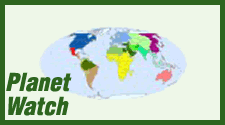 The UN General Assembly Special Session (UNGASS) on the world drug problem closed in New York on April 21—formally adopting a document (PDF) with no actual debate in the General Assembly. The document had actually been prepared out by a select coterie of diplomats in Vienna weeks before the UNGASS even opened. There were some small improvements over the last UNGASS document in 1998, which hubristically called for a "drug-free world" within 10 years. The new document does not repeat this language, and does for the first time mention "human rights." But, as the Talking Drugs blog notes, the new document continues to use the words "use" and "abuse" as synonymous.
The UN General Assembly Special Session (UNGASS) on the world drug problem closed in New York on April 21—formally adopting a document (PDF) with no actual debate in the General Assembly. The document had actually been prepared out by a select coterie of diplomats in Vienna weeks before the UNGASS even opened. There were some small improvements over the last UNGASS document in 1998, which hubristically called for a "drug-free world" within 10 years. The new document does not repeat this language, and does for the first time mention "human rights." But, as the Talking Drugs blog notes, the new document continues to use the words "use" and "abuse" as synonymous.
But as the new document was approved, a group of high-profile dissidents held their own press conference in Manhattan—former Mexican president Ernesto Zedillo, former Colombian president César Gaviria, former Swiss president Ruth Dreifuss, a former UK deputy prime minister Nick Clegg, entrepreneur Richard Branson and former US Federal Reserve chair Paul Volcker. Speaking as members of the Global Commission on Drug Policy, six said they were "profoundly disappointed" by the failure of the UNGASS document to produce substantive change.
The Global Commission issued its own statement (PDF) critquing the UNGASS document, saying it "does not acknowledge the comprehensive failure of the current drug control regime to reduce drug supply and demand. Nor does the outcome document account for the damaging effects of outdated policies on violence and corruption as well as on population health, human rights and wellbeing. By reaffirming that the three international conventions are the 'cornerstone of global drug policy', the document sustains an unacceptable and outdated legal status quo."
The three conventions reaffirmed in the UNGASS documents are 1961 Single Convention on Narcotic Drugs, the 1974 Convention on Psychotropic Substances and the 1988 UN Convention against Illicit Traffic in Narcotic Drugs and Psychotropic Substances.
In the preulude to the UNGASS, dissent was voiced from medical professionals to the current drug war model. The next time the growing dissent will be put to the test is in 2019, when the UN Plan of Action developed from the 1998 call for a "drug free world" will be up for review.







Recent comments
2 weeks 4 days ago
2 weeks 4 days ago
5 weeks 5 days ago
6 weeks 4 days ago
10 weeks 5 days ago
14 weeks 3 days ago
18 weeks 3 days ago
19 weeks 2 days ago
29 weeks 2 days ago
33 weeks 2 days ago